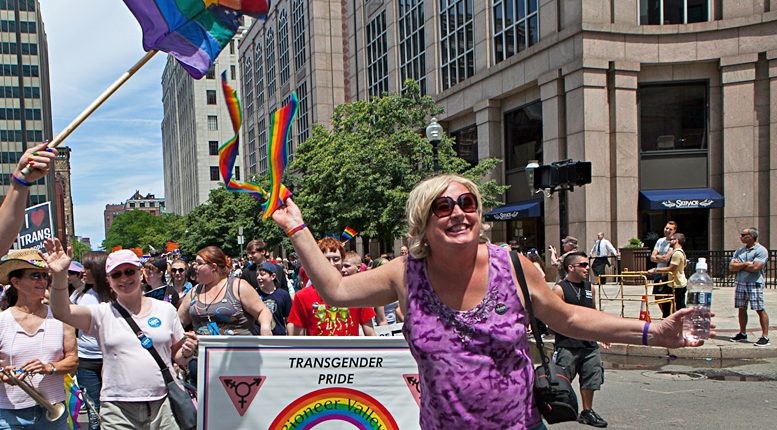By: Deja Nicole Greenlaw*/TRT Columnist—
After being deep in my closet for five decades, I finally reached out for support. It was in late 2001, just two months after the September 11 attacks on the World Trade Center, the Pentagon, and reportedly the White House. It was a scary time and I knew that I finally had to begin dealing with my gender issues before my life was over. With the attacks I realized that at any time and at any place some religious extremist could end my life. It was then that I knew I had to address my gender issues right away.
I tried to find a therapist, but back in 2001 there were not many therapists who knew anything at all about trans people. I found that the therapists that I saw knew much less about trans people than I did. After giving up on therapists, I decided to contact a local trans support group. That was the beginning of my support. From that group I found out that I was not alone in struggling with my gender identity. All of the people I met in the group had similar stories to mine. I immediately felt a sense of community. Through the support group I found out where to go to purchase clothes, wigs, and makeup, what bars and various events I could patronize, while dressed as female, and about other local support groups. Suddenly, a whole new world opened up to me. I no longer felt alone and scared.
Maybe it was because the group was my initial form of support, but I do recommend support groups that meet in person for most people who are dealing with their gender struggles. There was something about meeting and talking to people face-to-face that really helped me. How to do things, how to approach them, dealing with family, friends, and workplaces, dealing with church groups and various clubs, and basically dealing with everyday life were the questions that I asked and received answers on what to do and what not to do. Afterwards, I could discuss my successes or failures with the group and get various opinions on maybe what I did or what I should have done instead. It was great to get immediate feedback in person.
Since 2001, I have watched many folks receive help from trans support groups, both in-person groups and online groups. Online groups are wonderful, too, but I prefer groups that meet in person. Not everyone feels like I do, however, and many folks rely on online groups and online friends to help them with their gender struggles. I think that online support groups do fill important needs for these folks and it is truly wonderful to go online and feel an immediate sense of community and support.
Still, there are others who pretty much go it alone and don’t have much contact with others in the trans community. Usually these people have support systems of their own. Many of these folks have a significant other, friend, or a family member who loves, accepts, and helps them so they might not need to seek out additional help. This is great. The main thing is to have support.
Since 2001, I’ve noticed that therapists have come a long way and now are becoming well versed in dealing with trans people and the struggles that trans people face. I’ve heard many good stories from trans folks who were greatly helped by their therapists.
Some of these therapists recommend that their clients attend an in-person support group to meet others who are like minded. Sometimes the value of an in-person support group is warranted. I help run a local trans support group and I’ve noticed that many new members have been referred to our group by their therapists. Sometimes in-person support groups really help others in finding a sense of community and belonging.
So, I guess that it really doesn’t matter where you get your support from, but rather that you have a place where can you go to get information, receive support, and find a feeling of acceptance. The most important support we can get, in my humble opinion, are the feelings that we are no longer alone, that we are okay, and that we are worthy of living our lives. The rest is gravy.
*Deja Nicole Greenlaw is a trans woman who has 3 grown children and is retired from 3M. She can be contacted at dejavudeja@sbcglobal.net.







